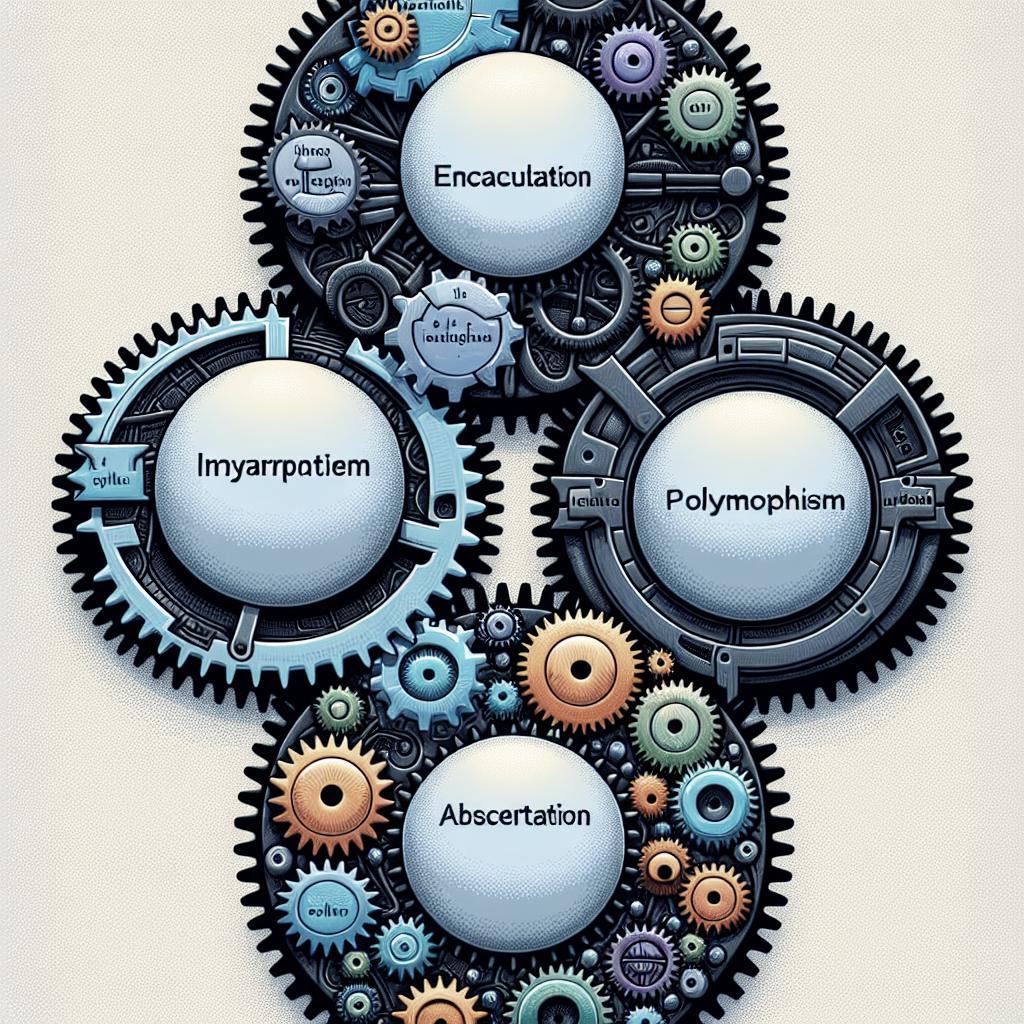“`html
Understanding the Principles of Object-Oriented Programming
Object-oriented programming (OOP) is a paradigm that uses “objects” to represent data and methods with which it interacts, making software design more intuitive and scalable. In this blog post, we explore the core principles of OOP—encapsulation, inheritance, abstraction, and polymorphism—and their implementation in software development. Whether you are a novice or an experienced developer, understanding these principles will provide you with the foundation to create efficient and sophisticated applications. Additionally, we will introduce you to a practical resource on GitHub, DanielPaulWilkinson/OOPPrinciples, offering further insights and examples. By the end, you will have a strategic understanding of how to apply OOP concepts efficiently in your projects.
Repository
The concept of a repository in programming is crucial as it helps in organizing and managing code. It provides a central place where all the components of a programming project are stored, documented, and shared. Repositories often facilitate collaboration and version control, allowing multiple developers to work on different parts of the project simultaneously without the risk of overwriting each other’s changes. Utilizing a repository ensures an orderly workflow and helps maintain the integrity of the codebase.
In the context of object-oriented programming, repositories contain not just code but documentation and examples that illustrate how to apply OOP principles effectively. They serve as a critical resource for understanding the nuances and implementation of concepts like encapsulation and polymorphism. A well-managed repository will also include test cases and results, which provide insights into the functional aspects of the code and help identify areas for optimization. Through repositories, developers can share knowledge, enhance skills, and contribute to a collective understanding of OOP.
DanielPaulWilkinson/OOPPrinciples
One of the valuable resources available on GitHub is the repository named DanielPaulWilkinson/OOPPrinciples. This repository is designed to provide practical insights into the core concepts of object-oriented programming. By exploring the examples and explanations included, developers can gain a clear understanding of how to implement OOP principles practically and effectively in development projects. The repository serves as a hands-on guide, bridging the gap between theoretical knowledge and real-world application.
This GitHub resource is specifically tailored to those interested in mastering OOP principles such as encapsulation, abstraction, inheritance, and polymorphism. It contains well-structured code samples that demonstrate how these principles are applied in various programming languages. By following the examples and contributing to the repository, developers can refine their skills and contribute to a growing community of like-minded individuals dedicated to advancing OOP knowledge and practices.
OOP Principles Explained. Contribute to DanielPaulWilkinson/OOPPrinciples development by creating an account on GitHub.
The repository is open for contributions, encouraging developers to get involved and further the development of its contents. By creating an account on GitHub, individuals can access the repository, review the code, experiment with the examples, and contribute their own insights or improvements. This collaborative environment facilitates continuous learning and enhancement of programming skills, fostering a sense of community among developers interested in OOP.
By engaging with the OOP community on GitHub, developers not only gain technical proficiency but also learn the importance of sharing knowledge and collaborating with others in the field. Contributing to this repository allows individuals to remain at the forefront of software development trends and techniques, ensuring that they are equipped with the most current and effective tools available.
Further Reading
For those eager to deepen their understanding of object-oriented programming principles, there is a wealth of additional resources available. Books, online courses, tutorials, and articles provide further insights into OOP and its implementation across different programming languages. Key texts such as “Design Patterns: Elements of Reusable Object-Oriented Software” by Erich Gamma and “Object-Oriented Analysis and Design” by Grady Booch are highly recommended for advanced learning.
Online platforms such as Coursera, Udemy, and edX offer a plethora of courses for beginners and seasoned developers alike, covering basics to advanced concepts in OOP. These courses often include interactive elements like quizzes, coding exercises, and projects, enabling learners to apply concepts in real-time. Engaging with these resources ensures that developers continually refine their skills, remain adaptable to new methodologies, and stay updated with the latest advancements in technology.
Participating in community forums and attending coding workshops or meetups can also be immensely beneficial. These platforms provide opportunities for developers to discuss challenges, share experiences, and learn from others’ successes and failures. Staying engaged with the broader community helps foster a lifelong learning attitude essential in the ever-evolving field of technology.
| Section | Summary |
|---|---|
| Repository | Introduces the concept of repositories in programming, emphasizing organization and collaboration. |
| DanielPaulWilkinson/OOPPrinciples | Highlights a GitHub repository that offers practical examples of OOP principles, encouraging collaboration. |
| OOP Principles Explained | Discusses the repository’s collaborative environment and its role in developer skill enhancement. |
| Further Reading | Provides additional resources and recommendations for learning and mastering OOP concepts. |
“`


